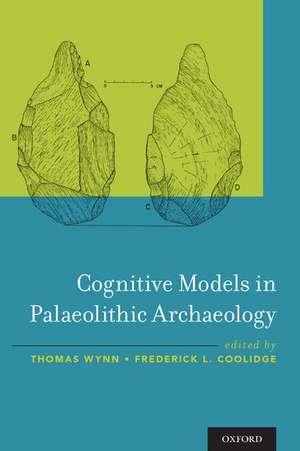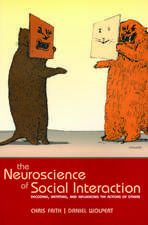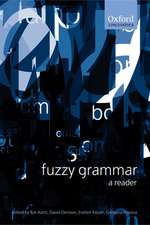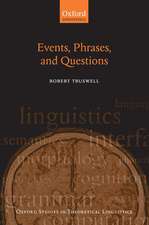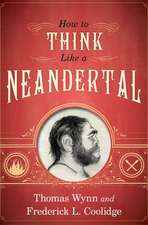Cognitive Models in Palaeolithic Archaeology
Editat de Thomas Wynn, Frederick L. Coolidgeen Limba Engleză Hardback – 8 dec 2016
Preț: 521.63 lei
Preț vechi: 788.87 lei
-34% Nou
Puncte Express: 782
Preț estimativ în valută:
99.81€ • 104.22$ • 82.42£
99.81€ • 104.22$ • 82.42£
Carte tipărită la comandă
Livrare economică 04-10 aprilie
Preluare comenzi: 021 569.72.76
Specificații
ISBN-13: 9780190204112
ISBN-10: 0190204117
Pagini: 240
Dimensiuni: 236 x 157 x 20 mm
Greutate: 0.48 kg
Editura: Oxford University Press
Colecția OUP USA
Locul publicării:New York, United States
ISBN-10: 0190204117
Pagini: 240
Dimensiuni: 236 x 157 x 20 mm
Greutate: 0.48 kg
Editura: Oxford University Press
Colecția OUP USA
Locul publicării:New York, United States
Recenzii
“This is an area of great importance in understanding humanity, one of rapid development and one where new views of theory and practice are essential to continued progress. Thomas Wynn and Frederick L. Coolidge have put together a fascinating new collection that has real substance and is both topical and thought-provoking. It will be a 'must read' for a professional audience, and can provide a useful spine for teaching cognitive evolution modules. This book will certainly be seen as on the cutting edge of current thinking.>
“If mind is a process, we need to investigate the relationships among its parts. This book frames cognitive models into an evolutionary perspective, a necessary step to disclose those relationships. Knowledge is about questions, and this publication shows that cognitive archaeology is now looking for its own ones.>
“This offering from the standard bearers of cognitive archaeology will be a stimulating read, with both new ways of looking at the record and new ideas of when and where specific cognitive abilities are first manifested. I am particularly excited by the number of developments in cognition, including in expertise and Theory of Mind, that are suggested to occur within the Acheulean period.>
“If mind is a process, we need to investigate the relationships among its parts. This book frames cognitive models into an evolutionary perspective, a necessary step to disclose those relationships. Knowledge is about questions, and this publication shows that cognitive archaeology is now looking for its own ones.>
“This offering from the standard bearers of cognitive archaeology will be a stimulating read, with both new ways of looking at the record and new ideas of when and where specific cognitive abilities are first manifested. I am particularly excited by the number of developments in cognition, including in expertise and Theory of Mind, that are suggested to occur within the Acheulean period.>
Notă biografică
Thomas Wynn, PhD, is Distinguished Professor of Anthropology at the University of Colorado, Colorado Springs. He has published extensively in Palaeolithic archaeology, with a particular emphasis on cognitive evolution.Frederick L. Coolidge, PhD, is Professor of Psychology at the University of Colorado, Colorado Springs. He focuses primarily on behavioral genetics, paleopsychology, and personality disorders across the lifespan.Both editors are well-known in paleoanthropology as advocates of the enhanced working memory hypothesis for recent cognitive evolution. In 2012, they co-founded the UCCS Center for Cognitive Archaeology. They have also published numerous articles and two books together: The Rise of Homo sapiens: The Evolution of Modern Thinking (2009) and How To Think Like a Neandertal (OUP 2012).
